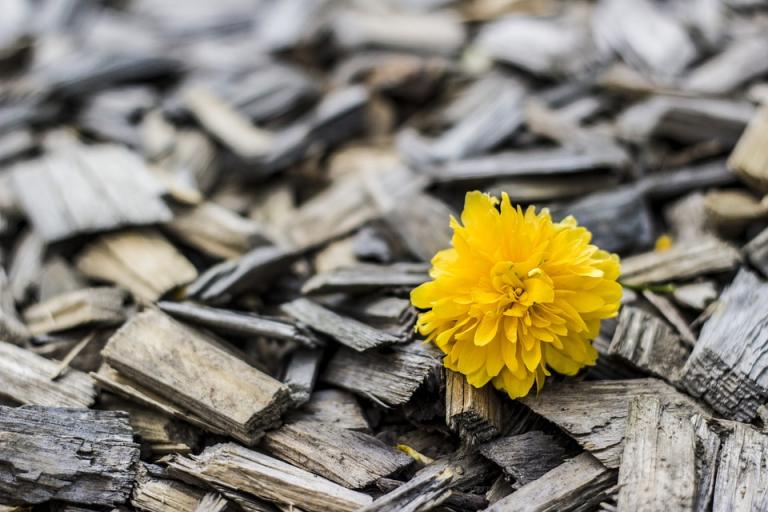“I will even be so indecently frivolous to burst into song, and say to…young pessimists:
‘Some sneer; some snigger; some simper;
In the youth where we laughed and sang.
And they may end with a whimper
But we will end with a bang.’”– G.K. Chesterton
Don’t despair.
I know. I know.
Things look pretty grim.
Heinous violence is commonplace. Civility is increasingly rare. One class hates another. One race resents another. Vital laws are ignored. Frivolous laws are enacted. Rights are demanded. Duties are ignored. Ideology is rampant. Common sense is scarce.
And the way forward?
Present leadership has been downright derelict and future leadership promises a choice between sputtering vitriol and haughty dogmatism.
And so, it is easy to despair.
But we can’t.
There is too much at stake. We must keep our heads about us. In the darkest days of Karol Wojtyla’s young life in Nazi-occupied Poland, the future pope and saint took the experience of suffering and despair as a galvanizing force. In the midst of darkness, we are called to suffer with Christ. As Wojtyla would write in the abyss of 1939,
“I have lately given much thought to the liberating force of suffering. It is on suffering that Christ’s system rests, beginning with the cross and ending with the smallest human torment.”
In suffering with Christ, we are to renew who we are and what we believe. This suffering was the edifice upon which Wojtyla would offer cultural resistance in the form of his underground Rhapsodic Theater. This despair was the foundation upon which St. John Paul II would topple the monstrosity of Communism while chastising the decadence of the West.
Don’t despair. There is too much at stake. We have too much to do. We must hold strong and keep the faith. We must have hope. As G.K. Chesterton wisely reminded,
“Hope means hoping when things are hopeless, or it is no virtue at all… As long as matters are really hopeful, hope is mere flattery or platitude; it is only when everything is hopeless that hope begins to be a strength.”
And J.R.R. Tolkien would add,
“Oft hope is born when all is forlorn.”
We must pray and trust God. We must know what we believe. We must teach it to our children. We must reclaim courage and civility. We must celebrate faith and reason. We must write strong defenses and pen beautiful tributes. We must bind wounds and take strong stances. Let us honor our God, our families and our calling. We cannot withdraw or become reclusive. We must be faithful and steadfast. If not us, then who?
Now, let’s take a deep breath, turn off the television, silence the chattering social media and focus on what truly matters, on what is enduring, on the Permanent Things that will rescue the world. Let us walk forward with this reminder from British journalist and Catholic convert, Malcolm Muggeridge,
“I feel so strongly at the end of my life that nothing can happen to us in any circumstances that is not part of God’s purpose for us. Therefore, we have nothing to fear, nothing to worry about, except that we should rebel against His purpose, that we should fail to detect it and fail to establish some sort of relationship with Him and His divine will. On that basis, there can be no black despair, no throwing in of our hand. We can watch the institutions and social structures of our time collapse – and I think you who are young are fated to watch them collapse – and we can reckon with what seems like an irresistably growing power of materialism and materialist societies. But, it will not happen that that is the end of the story. As St. Augustine said – and I love to think of it when he received the news in Carthage that Rome had been sacked: Well, if that’s happened, it’s a great catastrophe, but we must never forget that the earthly cities that men build they destroy, but there is also the City of God which men didn’t build and can’t destroy. And he devoted the next seventeen years of his life to working out the relationship between the earthly city and the City of God – the earthly city where we live for a short time, and the City of God whose citizens we are for all eternity.
You know, it’s a funny thing, but when you’re old, as I am, there are all sorts of extremely pleasant things that happen to you. One of them is, you realize that history is nonsense, but I won’t go into that now. The pleasantest thing of all is that you wake up in the night at about, say, three a.m., and you find that you are half in and half out of your battered old carcass. And it seems quite a toss-up whether you go back and resume full occupancy of your mortal body, or make off toward the bright glow you see in the sky, the lights of the City of God. In this limbo between life and death, you know beyond any shadow of doubt that, as an infinitesimal particle of God’s creation, you are a participant in God’s purpose for His creation, and that that purpose is loving and not hating, is creative and not destructive, is everlasting and not temporal, is universal and not particular. With this certainty comes an extraordinary sense of comfort and joy.
Nothing that happens in this world need shake that feeling.”
Don’t despair.
————————–
Photo credit: Pixabay


















